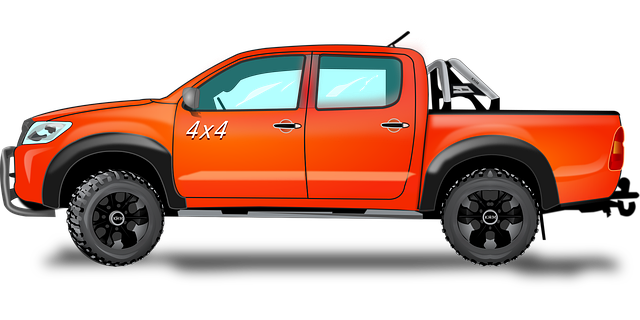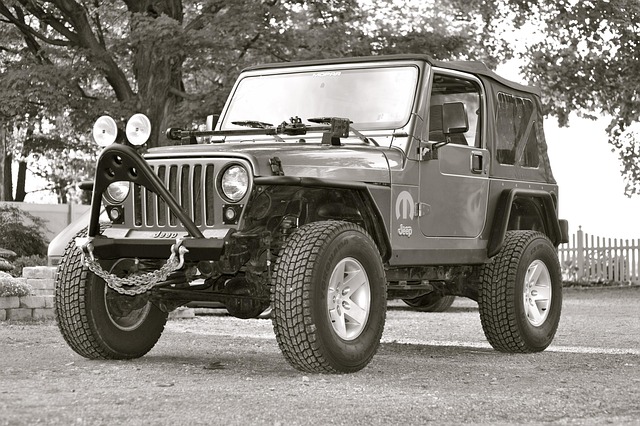Brownsville fleet truck owners prioritize regular Brownsville fleet truck steering repair for safety and performance. Shackles, vital connectors securing wheels to suspensions, require meticulous care due to wear and tear. Skilled mechanics inspect, lubricate, and address issues early to prevent failures, ensuring stability and reducing risks on the road. Proactive maintenance extends shackle lifespan, enhances fuel efficiency, and minimizes accident hazards for Brownsville fleet operators.
In the bustling world of Brownsville fleet management, understanding the intricate components that keep trucks running smoothly is paramount. Among these, shackles play a critical role in truck steering systems, connecting key parts and enabling maneuverability. This article delves into the basic components and functions of shackles in Brownsville fleet vehicles, highlighting why prompt truck steering repair is essential when they’re damaged or worn out. We’ll explore common issues, causes of shackle failure, and the vital role of regular maintenance in extending their lifespan and ensuring road safety.
- Understanding Shackles: The Basic Components and Their Functions in Brownsville Fleet Vehicles
- Why Truck Steering Repair is Crucial When Dealing with Damaged or Worn-Out Shackles
- Common Issues and Causes of Shackle Failure in Commercial Trucks
- The Role of Regular Maintenance in Prolonging Shackle Lifespan and Ensuring Safety on the Road
Understanding Shackles: The Basic Components and Their Functions in Brownsville Fleet Vehicles

In the context of Brownsville fleet vehicles, understanding shackles is key for efficient truck maintenance and steering repair. Shackles, also known as U-bolts or hitch pins, are essential components that serve to secure and stabilize various parts of a truck’s system. In these fleets, where trucks often navigate challenging terrain and bear heavy loads, the reliability of shackles becomes paramount. They play a crucial role in connecting hitches, trailers, and other accessories to the vehicle, ensuring stability during transit.
Brownsville fleet managers and mechanics rely on robust shackle designs that can withstand the rigors of daily use. The basic components include a metal shaft, a nut, and a washer. The shaft is typically made from high-strength steel to resist breakage, while the nut secures the connection tightly. Washers distribute the load evenly, preventing damage to the surrounding parts. Regular inspection and replacement of shackles are vital for maintaining optimal truck performance and avoiding costly steering repair issues, especially in demanding fleet operations.
Why Truck Steering Repair is Crucial When Dealing with Damaged or Worn-Out Shackles

When dealing with damaged or worn-out shackles on a truck, efficient and timely Brownsville fleet truck steering repair becomes paramount. Shackles play a critical role in a vehicle’s steering system, connecting the wheels to the suspension and allowing for smooth and controlled turns. If these components are compromised, it can lead to significant safety hazards and compromising the overall performance of the vehicle.
Repairs are essential as they ensure the stability and control of the truck during driving. Worn-out shackles may cause steering irregularities, increased vibration, and even loss of control, especially at higher speeds. Professional mechanics equipped with the right tools and expertise can promptly assess and fix these issues, ensuring the truck’s safety and roadworthiness for the Brownsville fleet.
Common Issues and Causes of Shackle Failure in Commercial Trucks

Shackle failure in commercial trucks is a common issue that can lead to serious safety hazards. One of the primary causes is regular wear and tear due to constant use, especially on Brownsville fleet truck steering systems. Over time, shackles become worn out, losing their strength and ability to support the vehicle’s weight properly. This is often exacerbated by inadequate maintenance, where regular inspections and replacements are neglected.
Another significant factor is the type of road conditions these trucks navigate daily. Pot holes, rough terrain, and uneven surfaces can accelerate the degradation of shackles. Additionally, improper loading practices can also contribute to failure. When loads are not securely fastened or balanced, excessive strain is placed on the steering system, including the shackles, leading to premature wear and eventual breakdown. Regular maintenance checks by skilled technicians, such as those specializing in Brownsville fleet truck steering repair, can help identify potential issues early on, ensuring safety and minimizing costly repairs.
The Role of Regular Maintenance in Prolonging Shackle Lifespan and Ensuring Safety on the Road

Regular maintenance plays a pivotal role in extending the lifespan of shackles, which are critical components of truck steering systems, especially in Brownsville fleet operations. Skilled mechanics should inspect and lubricate these parts regularly to prevent wear and tear. By doing so, they can significantly reduce the risk of unexpected failures on the road, enhancing safety for both drivers and other motorists.
Proper maintenance routines include checking for excessive play, inspecting for cracks or damage, and ensuring that all moving parts are well-lubricated. These simple yet essential practices not only prolong the life of the shackles but also contribute to smoother and more efficient truck operations. For instance, a well-maintained steering system can improve fuel efficiency and reduce the risk of accidents caused by poor handling, which is particularly relevant for large fleet operators in Brownsville.
In conclusion, understanding the basic components and functions of shackles in Brownsville fleet vehicles is crucial for maintaining safety on the road. Regular maintenance, especially focusing on truck steering repair when issues arise, plays a pivotal role in prolonging shackle lifespan. By addressing common causes of shackle failure promptly, fleet managers can ensure their trucks operate efficiently, preventing potential accidents and reducing downtime. This holistic approach to fleet maintenance emphasizes the interconnectedness of vehicle systems, ultimately contributing to a safer and more reliable Brownsville trucking industry.
